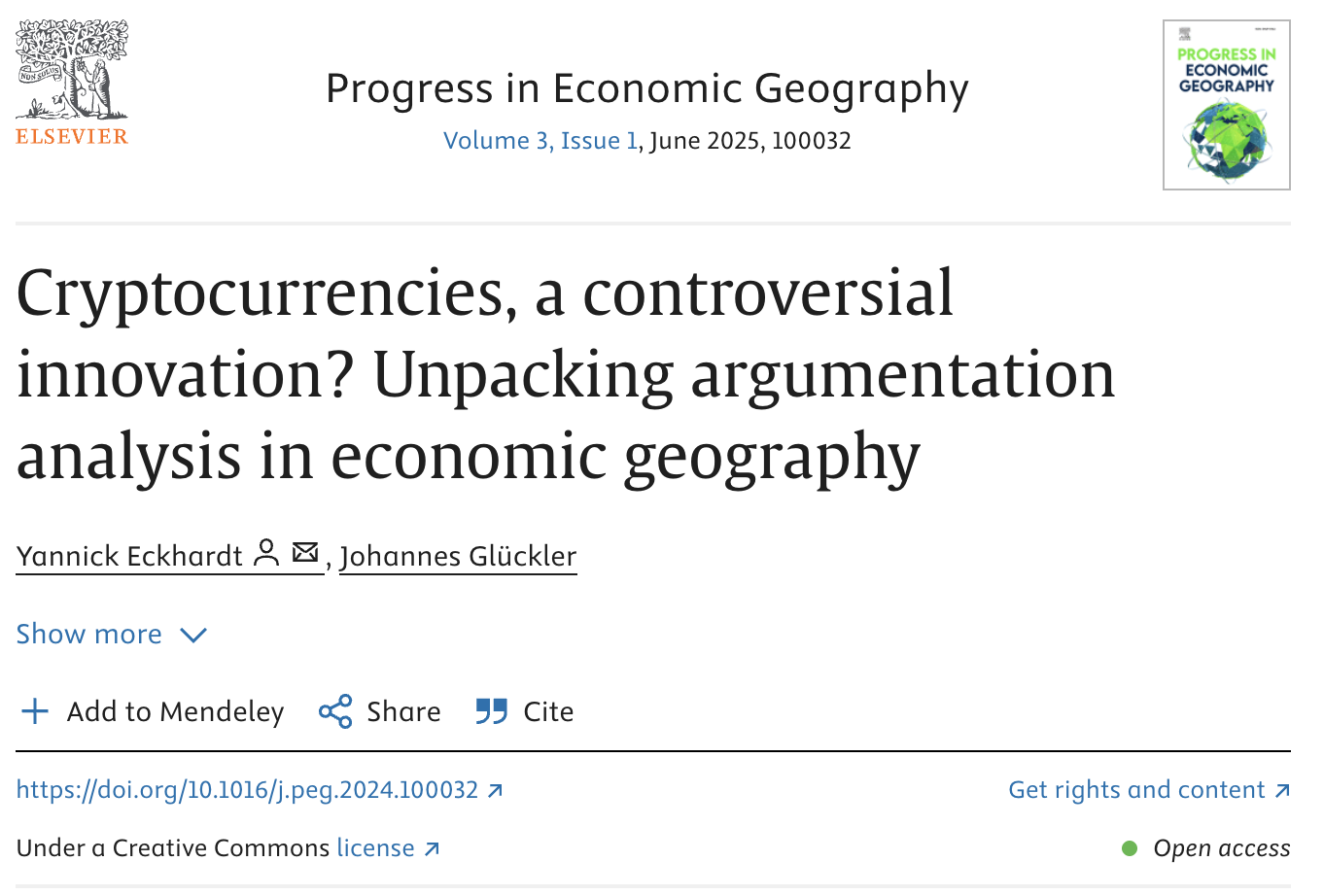Why Cryptocurrencies Are Still Controversial: 6 Key Arguments Driving the Global Crypto Debate
Even after more than a decade of growth, cryptocurrencies remain one of the most polarizing innovations of our time. For every believer calling crypto the future of finance, there’s a skeptic calling it a speculative bubble or environmental threat.
A recent academic paper, “Cryptocurrencies, a Controversial Innovation? Unpacking Argumentation Analysis in Economic Geography” by Eckhardt and Glückler (2025), dives deep into this divide.
Rather than measuring price movements or regulation, the authors ask a simpler question:
Why is crypto so controversial, and how are those arguments structured around the world?
Their answer reveals that the crypto debate is systematic. It’s shaped by place, politics, and perception.
What the Research Explores
The study introduces the concept of “controversial innovation”, technologies that disrupt existing systems but also trigger persistent public disagreement.
Crypto fits that label perfectly. Using argumentation analysis, the researchers examined dozens of publications, from news media to academic papers and industry reports, to map out how people argue for or against crypto.
Their method identifies six key dimensions of disagreement that define the global conversation about cryptocurrencies.
The Six Dimensions of the Crypto Controversy
1. Purpose and Legitimacy (Raison d’être)
Supporters see crypto as financial liberation and innovation. Critics view it as unnecessary or parasitic on existing systems.
2. Environmental Impact
Bitcoin’s energy use remains a flashpoint. The debate splits between those who call it wasteful and those who argue it drives renewable innovation.
3. Social Inclusion
Proponents claim crypto empowers the unbanked and democratizes finance; skeptics note that technical barriers and volatility often exclude those same groups.
4. Illicit Activity and Regulation
Crypto’s pseudonymous design sparks tension between privacy advocates and regulators worried about money laundering, tax evasion, or terrorist financing.
5. Economic Impact
Supporters highlight innovation, new markets, and decentralized finance. Critics warn of bubbles, instability, and unproductive speculation.
6. Decentralization and Governance
Crypto is often celebrated as decentralized, yet many networks are governed by small groups of developers or large holders, raising questions about real power.
Geography Matters: Why Context Shapes Controversy
The study shows that crypto debates are not uniform worldwide.
A region’s laws, culture, economic systems, and institutions heavily influence how cryptocurrencies are discussed.
For example:
In Europe, environmental and regulatory arguments dominate.
In Latin America, crypto is often framed as a tool for financial freedom and inflation protection.
In Asia, the debate focuses on innovation, fintech policy, and control.
By applying an economic geography lens, the authors remind us that “the meaning of crypto depends on where you stand.”
What This Means for Crypto Investors, Builders, and Communicators
For Investors
Understand that controversy is a sign of disruption.
Track which dimension of the debate dominates public discourse in your region; it can influence regulation, sentiment, and adoption.
For Builders & Projects
Address the controversy head-on.
If your project’s value lies in inclusion, prove it through accessibility.
If it’s about sustainability, show verifiable energy efficiency.
If it’s about decentralization, demonstrate transparent governance.
For Marketers & Educators
Leverage these six debate dimensions to frame balanced, credible storytelling.
Audiences trust brands that acknowledge both sides of the crypto conversation.
Why This Paper Matters
This research offers a refreshing lens: instead of viewing crypto purely as an economic or technical system, it treats it as a social conversation, a living debate about values, risks, and future visions of money.
By unpacking how these arguments form and persist, the paper equips policymakers, researchers, and industry leaders with a framework to understand why consensus remains elusive, and why that’s not necessarily a bad thing.
Controversy, after all, can fuel innovation.
Final Takeaway: Embrace the Debate
Cryptocurrencies are not just a technological invention. They’re a social experiment unfolding in real time.
Eckhardt and Glückler’s study shows that disagreement is baked into crypto’s DNA.
The path forward isn’t about eliminating controversy but understanding and engaging with it, intelligently, transparently, and with awareness of place and perspective.


